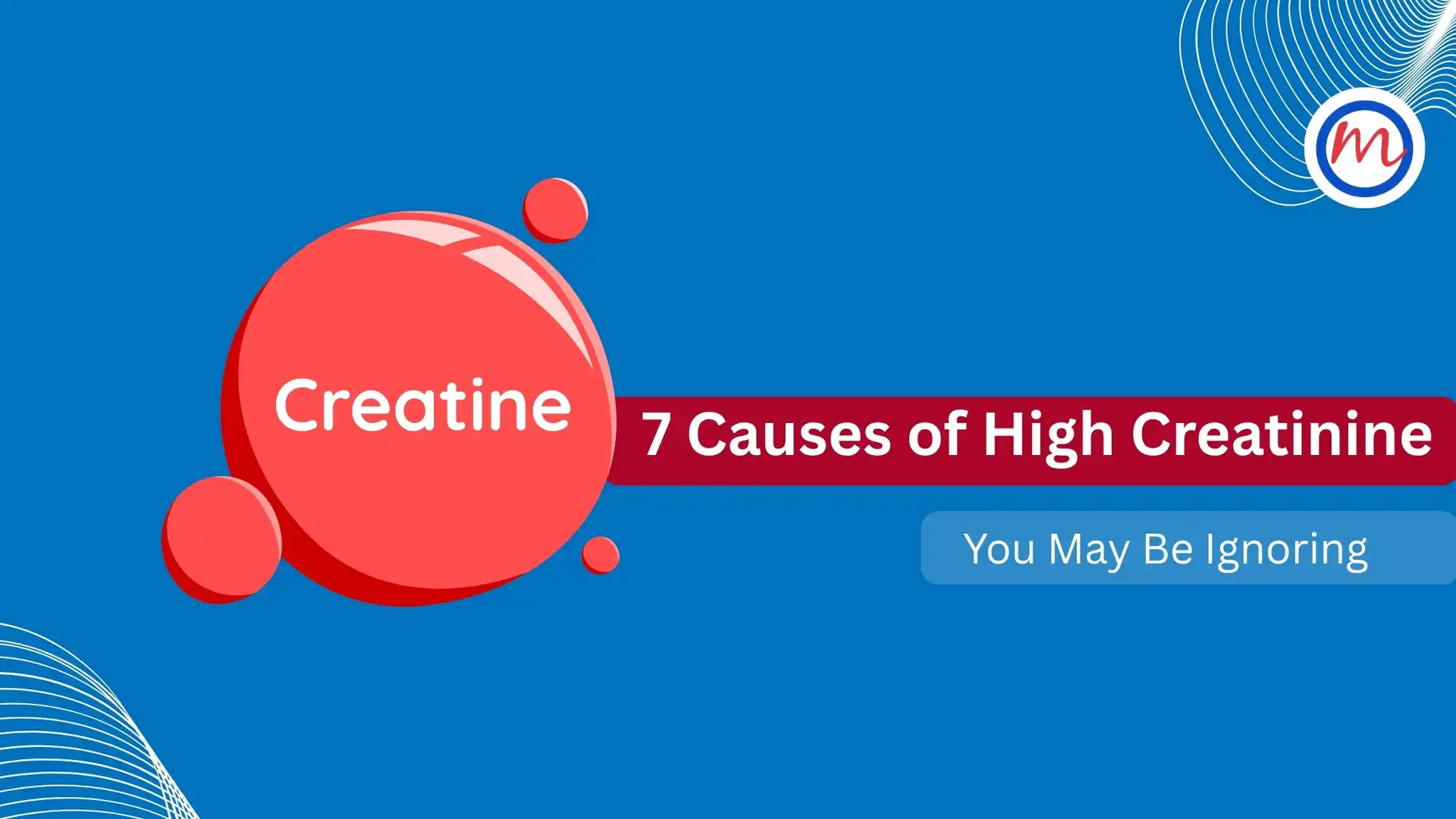7 Causes of High Creatinine You May Be Ignoring
Have you ever been told your serum creatinine is high? For most people, that sparks concern about kidney health — and rightly so. But what many don’t realise is that elevated creatinine can happen for several reasons, not all of them related to permanent kidney damage.
Creatinine is a waste product formed when your muscles break down a compound called creatine. Normally, your kidneys filter creatinine from your blood and eliminate it through urine. When kidney function declines, creatinine levels rise.
But kidney damage isn’t always the only cause of an elevated creatinine level. Here are 7 often-overlooked reasons why your creatinine levels may be elevated — and what they could mean for your health.
-
Dehydration
Not drinking enough water can temporarily raise your creatinine levels. When your body is dehydrated, there is less fluid in your bloodstream, causing creatinine concentration to increase.
Mild dehydration is one of the most common and reversible causes of high creatinine.
-
High-Protein or Meat-Rich Diet
Eating a diet rich in red meat or protein supplements may increase creatinine levels. This is especially true before blood tests, as digestion releases more creatinine into the bloodstream.
A heavy non-vegetarian meal the day before your test could alter your results.
-
Intense Exercise
Strenuous physical activity or heavy workouts can cause muscle breakdown, leading to a temporary spike in creatinine. This is especially seen in athletes or fitness enthusiasts.
Creatinine may rise even if your kidneys are perfectly healthy.
-
Certain Medications
Some drugs can interfere with creatinine excretion or damage kidney filtration, including:
- Painkillers (NSAIDs)
- Antibiotics (like aminoglycosides)
- Blood pressure medications (ACE inhibitors)
- Lipid drugs (Fibrates)
Always inform your doctor about medications you are taking before undergoing a creatinine test.
-
Undiagnosed Diabetes or High Blood Pressure
Both conditions can silently damage the kidneys’ filtering units over time, resulting in chronically high creatinine. If you haven’t been diagnosed yet, high creatinine might be your first clue.
Regular screening is critical for early detection in high-risk individuals.
-
Kidney Infections or Blockages
Urinary tract infections, kidney infections, or blockages like kidney stones can interfere with waste elimination and cause creatinine to accumulate in the blood.
Imaging and follow-up tests may be needed if your creatinine remains high despite treatment.
-
Chronic Kidney Disease (CKD)
This is the most serious reason for high creatinine. Over time, diabetes, hypertension, or other factors can damage your kidneys, reducing their ability to filter waste.
A falling eGFR alongside rising creatinine is a red flag for chronic kidney disease.
Normal Creatinine Levels
| Group | Normal Range (mg/dL) |
| Men | 0.7 – 1.3 |
| Women | 0.6 – 1.2 |
| Children | 0.3 – 1.0 |
Note: Values may vary slightly depending on the lab.
What You Can Do
- Stay hydrated throughout the day
- Limit red meat and protein powders if not advised by a doctor
- Avoid unnecessary painkillers or supplements
- Get regular tests to monitor eGFR and urine protein
- Talk to your doctor about any abnormal results
Keep Your Kidneys in Check
At Dr. Mohan’s Diabetes Specialities Centre, we offer complete kidney screening, including creatinine, eGFR, blood urea, and urine protein tests, all under one roof.
Visit us for more: https://drmohans.com/lab/
Book your health package now: https://drmohansdiabetes.co.in/dmdsc_packages/?package=DMD1504



